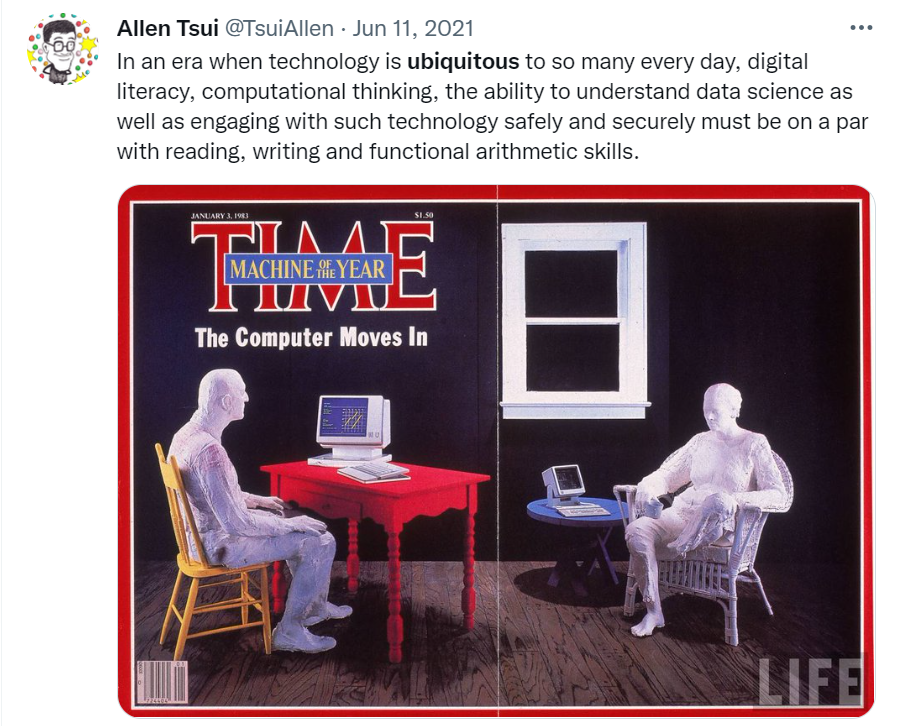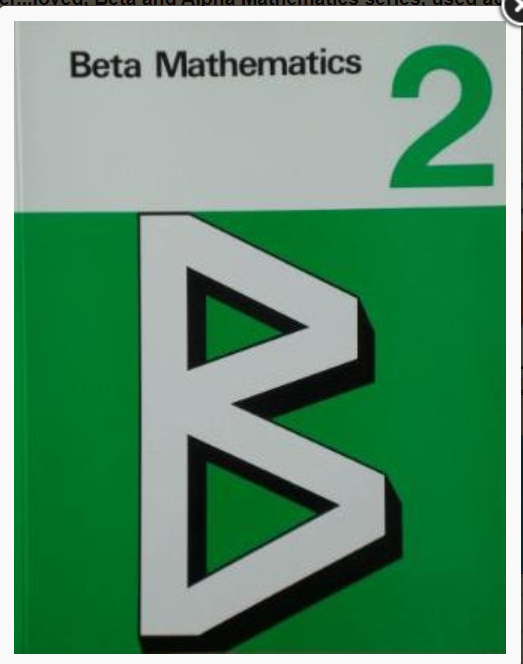


The blog from the Oak National Academy at the start of the 2022-23 school year:
https://www.thenational.academy/blog/evolution-of-oak sparked the usual and expected polarisation of views on Twitter. Rather than attempt to describe my own evaluation of the Oak National Academy in 280 characters, I wanted to exercise my views and opinions here.
Personally, I have absolutely no issue with the Oak National Academy as a service, product or platform. If anything, I really like the layout of the current (September 2022) platform and the ease with which teachers are able to access its resources. I saw first hand how my own daughter and son engaged with Oak National Academy during that Spring and Summer Term of 2020. Pedagogically too, I have firmly believed since I began working in schools in 2010 that the teaching community needs to harness the benefits of technology to support teaching and learning. The ability to repeatedly access video content ‘on demand’ as it were I think is invaluable for some learners who might need the opportunity to review specific learning points. As I have also previously said too since becoming the subject lead for Computing, my statement of Intent is:

Means to an end…
My ‘concerns’ using Civil Service speak from my former work life, are like many on Twitter to what political ends will the Oak National Academy be used for driving forward raising standards in teaching and learning? Having spent some time studying comparative international systems as part of my Postgraduate Degree in Educational Leadership at Manchester Metropolitan University, I read about some countries such as Greece and Spain who use ‘centrally’ published content at every stage of schooling. Such an approach already divides opinion on two levels. Firstly, to what extent does or do centrally published content respond to the needs of individual learners? This might sound like a circuitous argument given my stance on the benefits on providing digital learning. Having worked with a range of learners throughout my own professional life, from those who are significantly above or working towards to use teacher-speak ‘age related expectations’, professionally I prefer to be able to have the ability to tailor my teaching practice to meet the needs of the learners I have the honour and privilege of working with. A real example of this is the terrific TTRockStars platform which has a feature for teachers to support targeted learning enabling children to systematically focus on learning to recall specific sets of multiplication facts. Such an attitude or opinion may be controversial in itself but I believe being able to count in multiples is a core life-long arithmetic skill.
My other concern about centrally published resources is that it potentially limits the ability for teachers to be able to select resources which are innovative and potentially more suited to support the learning targets or as the Computing at School Leadership support resources describe as ‘learner end-points’. I speak from personal experience of this where I do not wholly follow any of the existing publish single schemes of work for teaching Primary Computing. I believe in using a blend of single schemes of work simply because each have their strengths and benefits. By way of specific examples, Purple Mash and the suite of ‘apps’ provided by Just2easy are fantastic online learning platforms. I should say at this point that I am not a marketing mule for either of these services. I simply wanted to sign post those scrolling by to services I think are worthy for schools to consider investing their limited budgets at. Schools across the UK, have also had the benefit from the buying power and expertise of the London Grid for Learning (nationally known as Trustnet since 2013). I have personally been pleased and proud to have been an active customer of the London Grid for Learning since 2010 when I was working at a school in the London Borough of Camden.
‘Big Brother’ is teaching you…
There are some on Twitter who also consider centrally produced resources to have a ‘de-skilling’ effect on the teaching profession. I personally take a contrary viewpoint since I believe given the physical landscape and scale or incredibly diverse variation in size of schools, certainly across England, shared teaching resources enable those schools, particularly primaries with little or limited subject knowledge specialism to have access to a network of support and teach to the highest standards possible. This has certainly been the underlying principles of both the Computing at School Community of Practice which has been in existence since 2012 as well as the National Centre for Computing Education established through £84 million DfE funding in 2018.
Teaching on the cheap
I do however share concerns expressed on social media as to what ‘political’ ends will the prominence of services provided by Oak National Academy have or make on schools. The political cynic in me makes me think that this may ultimately be a tool that the educational policy overlords will use to drive down the staffing costs for schools and erode the pay of teachers. Why should there be a need to have professionals paid for specialist roles in individual schools when there is this central bank of expertise available for ‘free’? I speak from professional experience outside the education system as through the 1990s and 2000s while working across the Criminal Justice System, I saw attempts to ‘simplify’ Criminal Court proceedings which inevitably cheapened justice. But they’re stories to share at another time and place…
Implementing the National Curriculum
I do have to reluctantly admit that the establishment of centrally endorsed teaching resources is a natural progression of the National Curriculum. It does not take much thinking to realise that it is a short route or link from statutory guidance of what is expected to be taught in schools to the production of approved teaching materials. Whether it becomes a mechanism for cost controls of both staffing as well as directing the purchasing of other physical resources remains to be seen. I think too that the commercialisation or monetisation of teaching materials or resources was also inevitable. There has been a historic relationship between ‘publishers’ and learning given the origins of approved reading lists and recommended textbooks at 16 plus, 18 plus and beyond. Having attended schools in London, I remember textbooks like these…

I, therefore, suspect that much of the criticism levelled at the Oak National Academy is professional envy at not being selected for what must be the very lucrative opportunity to produce officially approved teaching resources.
From my professional perspective as a specialist teacher of computing, I am delighted at the collaboration that Oak National Academy established with the National Centre for Computing Education since July 2020:
https://blog.teachcomputing.org/teach-computing-curriculum/ (last accessed: 22 September 2022)
The content creators include Twitter: Rebecca Franks, Ben Garside, Ben Hall and Allen Heard who I have had the pleasure of previously either ‘working’ with or hearing them speak as CPD facilitators.
What makes Outstanding teaching?
For me though, the elephant on the Zoom as it were, is the prospect of schools being obligated to use the Oak National Academy platform in order to secure Outstanding status. For the official scrutineers to mandate such a method for future inspections is not in my view, the way forward to raise teaching and learning standards. Instead, I would consider it is incumbent upon all teachers through our combination of subject knowledge and professional, pedagogical expertise to have the confidence to clearly demonstrate new stratospheric levels of Outstanding with or without centrally endorsed schemes of work. I’m certainly on stand-by, ready and waiting for that call…
